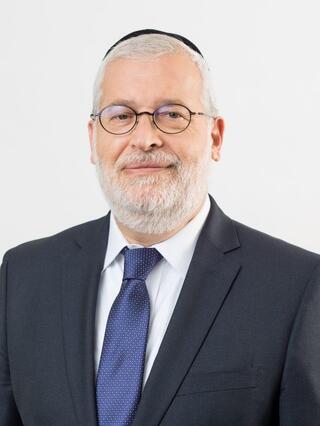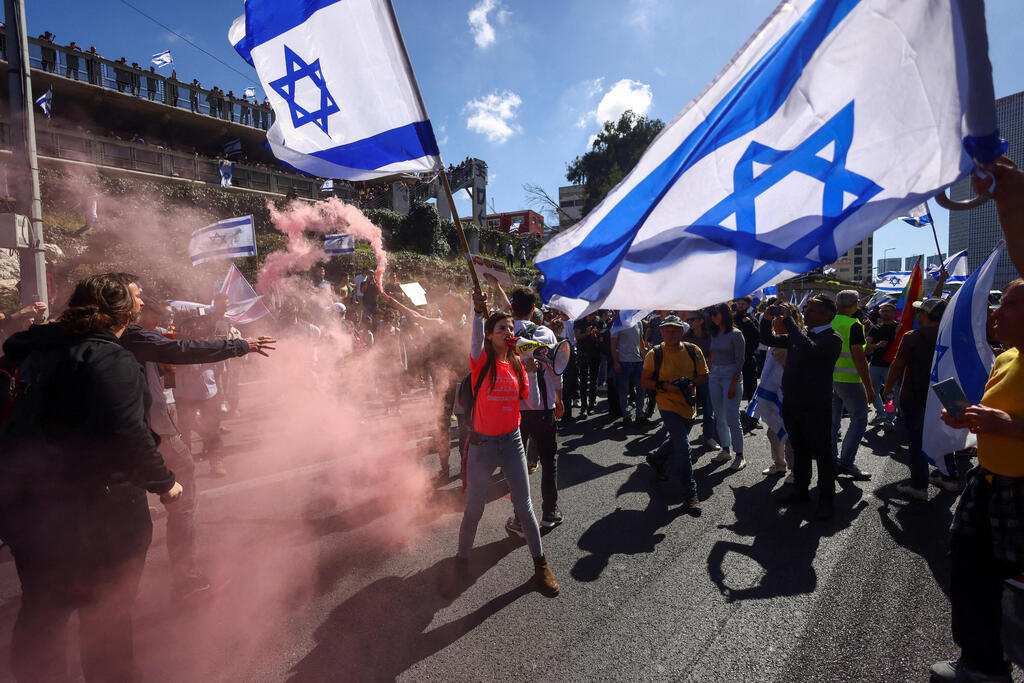It appears that I have been unwittingly dragged into a conflict that I never intended to participate in. This is a war that is rooted in emotions and personal vendettas rather than tackling the challenges we face as residents of Israel. It is being led by an overwhelming desire for retribution rather than a focus on the difficult paths that lie ahead of us.
- How I became a target of the Islamic Republic of Iranq Emily Schrader
From my perspective, if this conflict is being waged between the Haredi and Rothman-Levin reform factions on one side, and liberal Israelis who are prepared to launch a civil rebellion to prevent a judicial coup on the other - I refuse to be a part of it. I disdain this war because it offers no solutions for our collective future and because it is driving away individuals who I consider to be my partners and allies.
'Some things should never be up for debate'
I firmly believe that it is our duty, as individuals from all sides of the political spectrum - secular and Haredi alike - to demonstrate leadership and work together to find common ground. We must strive for compromise and bridge the social divides that threaten to tear our country, which our forefathers worked so hard to build, apart.
Over the past decade, I have devoted myself to the challenge of shaping a shared future for the Haredi community within Israeli society. I founded the Haredi Institute for Public Affairs, a research organization that brings together both secular and Haredi scholars. Together, they explore topics such as the future of the education system with a quarter of its students being Haredi, how the Haredi community can contribute to Israel's security challenges, and how to create a ten-year plan that enables Haredi men and women to assume key roles in Israeli society and the economy.
I can understand the fear and anxiety that stem from significant demographic changes. However, some things should never be up for debate, such as our collective desire to live in a country that respects its judicial system, a country in which the Chief Justice of the Supreme Court does not have to defend herself against those who label her as the enemy of the people. I refuse to live in a country where the Chief Justice is rejected and deemed illegitimate by its citizens. I want to reside in a nation that accepts its Supreme Court, and where the Haredi and observant communities do not feel as though critical and sensitive decisions have already been predetermined.
This is undoubtedly a complex and challenging situation, but our very existence is complex and fraught with difficulties. Our real battle should be one that focuses on securing our shared future. As the son of a Holocaust survivor who survived the bombing of the train to Auschwitz and as the grandson of a Jew who withstood the 1929 riots in Chevron while spreading the message of the Torah, I believe that we must come together as one people. As someone who was raised in the Haredi community in Jerusalem, I cannot imagine living without my secular brethren, not because they sustain the Gross National Income, but because my ancestors chose to renounce the Diaspora and build their home in Israel.
 Eli PaleyPhoto: Jessi Paley
Eli PaleyPhoto: Jessi PaleyThe diaspora represents avoidance of the challenges we face in building a shared future. It symbolizes the fear of civil war that looms over us and the constant uncertainty of whether our children can thrive here. These are concerns that plagued the diaspora but have no place in Israel.
Here, we are all part of one family, united by our shared destiny. With this unity comes great responsibility. As members of both the Haredi and broader Israeli society, we have a duty to act as stabilizers in the political sphere, promoting compromise and mutual trust. Our demographic growth can and should be a source of balance and cooperation, benefiting all parties involved. We must reject extremism and embrace collaboration if we hope to achieve a better future for ourselves and generations to come. This is a mission that cannot wait.
- Eli Paley, Chairman of the Haredi Institute for Public Affair and publisher of Mishpacha Publishing Group


